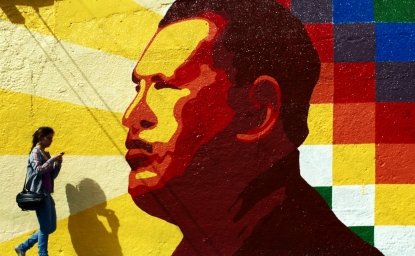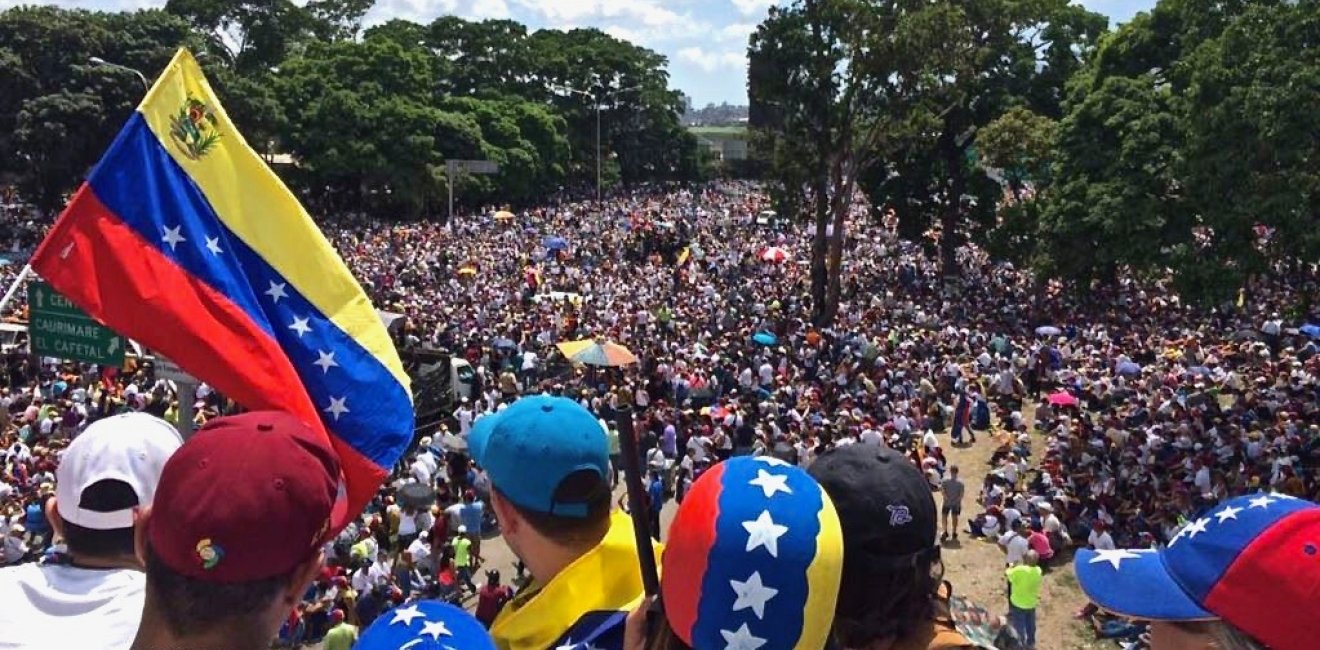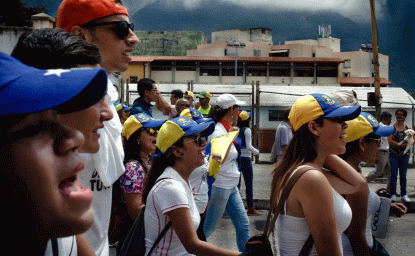On August 25, 2017, the White House announced the implementation of financial sanctions against Venezuela, which signals an important departure in U.S. foreign policy towards the country. This shift suggests a definitive move away from the use of individual sanctions aimed at restoring democracy and punishing human rights violations—in tandem with multilateral pressure—to prioritizing economic sanctions to accelerate regime change. The economic measures announced include the use of financial and potential future trade sanctions to limit the capacity of all international investors operating in the United States to issue new debt, refinance existing debt in capital markets, or acquire assets in state-owned enterprises, particularly in the oil and mining sector. The threat that U.S. sanctions towards Venezuela might go beyond targeting individuals had already loomed large after Vice President Mike Pence met with Venezuelans and others in one of the country’s immigrant hubs in Florida, announcing that there was a strong commitment to use the “full measure of American economic and diplomatic power to bear until democracy is restored” in the oil-rich nation.
However, applying wide-reaching economic sanctions might not accelerate the objective of bringing about regime change or even pushing for competitive elections. Blocking Venezuela’s access to international markets could backfire in a number of ways; in fact, the country already looks and feels as if it has adjusted to economic sanctions. Prior to these most recent announcements, and due to the self-imposed risk premium created by a faulty set of its own economic policies, Venezuela faced closed capital markets for any new issuances, and few U.S. investors were considering increasing their equity in state-owned enterprises in the oil and mining sector, which in the past have been plagued by massive expropriations. The real problem is that the country today is more dependent on Russia and China for fresh financing than on Western capital markets. In fact, in the last few years, capital markets have represented only a marginal source of new financing for the current government as well as the state-owned Petróleos de Venezuela (PDVSA). Most of the outstanding debt was issued during the presidency of Hugo Chávez, a time of high oil prices, and not by the government of current President Nicolás Maduro. Instead, the lines of credit from Russia—through Rosneft—and a two-year debt moratorium from China explain why Venezuela has been able to sustain a rotten set of economic policies and avoid a necessary and orderly restructuring of its foreign debt.
In the last few years, capital markets have represented only a marginal source of new financing for the current government as well as the state-owned Petróleos de Venezuela (PDVSA).
Limiting Venezuela’s ability to finance debt in capital markets may sound like a smart option. But in practice, it only makes the country even more dependent on Russia and China. These two countries will be more likely to aggressively pursue debt-to-equity operations at an even sharper discount rate to guarantee control over key natural resources in the mining and oil sectors. For the United States, this means losing out to two of its main competitors. It also cements Russia’s and China’s firm footholds in the region.
The tarmac at Venezuela’s once bustling international airport is now virtually deserted. Until a few years ago, Alitalia, Lufthansa, Air France, Iberia, Air Canada, and countless other international carriers had daily flights to Caracas. United, Delta, and American flew direct to Miami, Houston, Atlanta, Dallas, and New York City several times each day. Today, only a handful of airlines fly into Venezuela. There are ten times more flights from the United States into Havana than there are to and from its third largest oil supplier. Venezuela’s outstanding debts, failure to comply with airline safety protocols, and even political risk mean that even prior to the economic sanctions, the country was profoundly isolated.
The car manufacturing industry has similarly been in free fall. During the last oil boom in the mid-2000s, Venezuela was selling almost 400,000 vehicles a year. Almost half of these were manufactured in the country. Since Maduro was elected in 2013, the economic contraction has been so severe—almost one third of the GDP has been destroyed— that production in the automotive sector has dropped to just over 20,000 cars per year—a 95 percent decline. General Motors has closed shop and production in the Ford Motor Company plant has all but halted.
These are just two extreme examples among the countless others that exist that demonstrate how the Venezuelan economy is barely hanging by a thread. Imposing economic sanctions on a country that has already managed to exclude itself from international markets—thanks to a byzantine and corrupt fixed exchange rate system as well as an overregulated economy that could continue to shrink by more than 12 percent of GDP this year—has the potential to turn a dire situation into an even bigger catastrophe. As it stands, Venezuela’s mismanagement has already had the same effect that limiting oil exports to the United States would have. To date, the crisis is hurting ordinary Venezuelans vastly more than the corrupt officials responsible for these policies.
Imposing economic sanctions on a country that has already managed to exclude itself from international markets—thanks to a byzantine and corrupt fixed exchange rate system as well as an overregulated economy that could continue to shrink by more than 12 percent of GDP this year—has the potential to turn a dire situation into an even bigger catastrophe.
In addition to deepening the economic and social crisis, sanctions can also shift the blame to the United States and away from an authoritarian regime intent on squandering the country’s resources. Sanctions, in turn, would also leave the opposition, which for the last several months has been promoting street demonstrations and competitive elections, even more exposed to political repression. In the last four months alone, the number of political prisoners has grown dramatically. There are now close to 645 citizens behind bars for political reasons. Sanctions, framed by the Maduro government as the work of opposition leaders working alongside the U.S. government, would certainly prompt an even greater wave of repression against democracy activists throughout the country.
Not surprisingly, since the White House announcement was made, the Venezuelan regime has closed two important radio stations; it has banned the local transmission of two Colombian news outlets and has asked the National Constituent Assembly—which was fraudulently elected on July 30th—to restrict the use of social networks and to prosecute key opposition leaders. Therefore, imposing economic sanctions will most likely play into the hands of government officials who, in the past, have proven to successfully cast similar decisions as “imperialist” aggressions waged by “coup-mongering” opposition leaders who have increasingly relocated to Miami and Washington, D.C. According to some opinion polls, 55 percent of Venezuelans reject the idea of imposing these types of sanctions.
In addition to fueling anti-U.S. feelings in Venezuela, broad economic sanctions would also strengthen the opposition movement in exile, particularly those living in the United States, at the expense of the opposition parties taking the lead on the ground; as mentioned above, leaders and members of the political opposition would have to face ever worsening conditions. In many ways, applying economic sanctions could become a replay of the trade embargo against Cuba in the 1960s that helped to weaken the domestic opposition and strengthen the exile community. There is no doubt that the structural weakness of the opposition in Cuba was a product of intense political repression by the Castro regime, and the size of the exile community also a reflection of the regime’s jailing of opponents and expropriation of private property. But it is also true that in Cuba’s case, the embargo further eroded the legitimacy of an underground opposition that was struggling to confront a totalitarian regime and instead strengthened groups abroad that were attempting to restore democracy exclusively through international actions. By contrast, in Venezuela the opposition is domestically strong, despite the government’s efforts to split its leadership, basically because it remains united and continues to pose a serious political as well as electoral threat to the regime.
Despite these obvious shortcomings, some analysts continue to insist on the efficacy of or need for economic sanctions to induce a democratic opening in Venezuela and have suggested that more targeted and intelligent economic measures might work. Two other types of sanctions have been mentioned: conditioning oil payments on food imports and banning the U.S. export of diluents for heavy crude production in the Orinoco oil belt. However attractive these various kinds of sanctions might appear in order to punish the Maduro government, none of the alternatives is likely to be effective in accomplishing the desired outcomes.
However attractive these various kinds of sanctions might appear in order to punish the Maduro government, none of the alternatives is likely to be effective in accomplishing the desired outcomes.
As the experience in Iraq has shown, food-for-oil programs have been enmeshed in corruption by those who administer the sanctions. Such programs usually promote trade diversion, which tends to increase the cost of food. More to the point, Venezuela only imports 8 percent of its total food from the United States. To be effective, therefore, a food-for-oil program would require strong international cooperation from several Latin American and European countries that have already publicly opposed using economic sanctions as a means to address the democratic and humanitarian collapse in Venezuela.
Another option would be to ban the import of diluents from the United States, something that would immediately hurt an oil industry that has experienced a dramatic decline in production over the last several years. Since 2012, Venezuela has rapidly lost refining capacity due to a severe lack of investment in oil industry infrastructure. As a consequence, the country has become even more dependent on importing diluents from the United States for crude production in the heavy oil belt. Today diluents represent 32.3 percent of Venezuela’s total imports from the United States. If Venezuela were to be prohibited from importing diluents, the production of at least 250,000 barrels of crude annually from the heavy oil belt—over a quarter of Venezuela’s current total exports—would be affected. The impact of this ban on PDVSA’s already fragile cash flow would be immediate. It would most likely force a dying state-owned company to default on its debt; and it would also make it more difficult to pay arrears to key service providers, including U.S. companies. In practice, this “targeted” sanction would have the same impact as banning oil exports from Venezuela to the U.S. market, contributing to the final acceleration of the country’s economic collapse without any guarantee of producing the desired political outcome.
Defining next steps for the international community to foster positive change in Venezuela is no easy task. Maduro has proven to be a resilient, albeit toxic, leader capable of tightening his grip on power despite international condemnation, deepening economic and political turmoil, and the numerous electoral successes of a growing opposition.
Defining next steps for the international community to foster positive change in Venezuela is no easy task. Maduro has proven to be a resilient, albeit toxic, leader capable of tightening his grip on power despite international condemnation, deepening economic and political turmoil, and the numerous electoral successes of a growing opposition. As the situation in Venezuela rapidly continues to deteriorate, using economic sanctions might appear as a tempting shortcut to foster regime change; but sanctions can also be manipulated internally to appear as the reason for the crisis. This, in turn, can weaken the opposition, which is a crucial actor in Venezuela’s reconstruction.
Instead, the United States should continue to adopt a multilateral framework—with strong support from the region—along with individualized actions against public officials and private firms involved in corruption and human rights violations. This should be done explicitly in strong coordination with the European Union and other Latin American countries. The United States should also encourage Mexico and Colombia to help devise a more attractive energy policy that can compete with the Venezuelan-funded PetroCaribe. Today Caracas is more influential in Santo Domingo—where leaders continue to hold a neutral position on Venezuela’s political crisis—than it is in Bogotá, Mexico City, or Washington.
Finally, China has already become a key investor in Brazil, Peru, Mexico, Argentina, and Colombia. All of these Latin American countries have openly condemned the collapse of democratic institutions in Venezuela and would like to work on a multilateral approach to restore the rule of law. Therefore, although Venezuela is China’s most strategic partner in the region, the United States can work through these other countries on a diplomatic effort to convince Beijing that it is in the interest of their relationships with other Latin American countries to cooperate on a negotiated political settlement in Caracas that could potentially lead to the kind of transition from authoritarianism in Venezuela that would result in greater regional stability.
*Dr. Michael Penfold is a Global Fellow with the Wilson Center’s Latin American Program. He is also a full professor of Political Economy and Governance at the Instituto de Estudios Superiores de Administración (IESA) Business and Public Policy School in Caracas as well as a visiting professor at the Universidad de los Andes School of Government in Bogotá.
Photo Credit: Voice of America / Creative Commons
Author

Professor of Political Science, Instituto de Estudios Superiores de Administración (IESA) Business and Public Policy School, Venezuela

Latin America Program
The Wilson Center’s prestigious Latin America Program provides non-partisan expertise to a broad community of decision makers in the United States and Latin America on critical policy issues facing the Hemisphere. The Program provides insightful and actionable research for policymakers, private sector leaders, journalists, and public intellectuals in the United States and Latin America. To bridge the gap between scholarship and policy action, it fosters new inquiry, sponsors high-level public and private meetings among multiple stakeholders, and explores policy options to improve outcomes for citizens throughout the Americas. Drawing on the Wilson Center’s strength as the nation’s key non-partisan policy forum, the Program serves as a trusted source of analysis and a vital point of contact between the worlds of scholarship and action. Read more

Explore More
Browse Insights & Analysis
The Venezuela Crisis and Latin America’s Future

Greenland’s New Governing Coalition Signals Consensus


